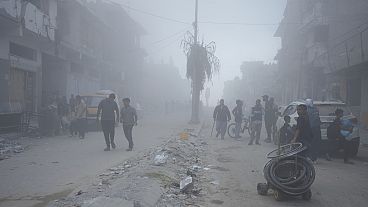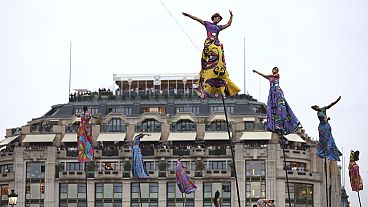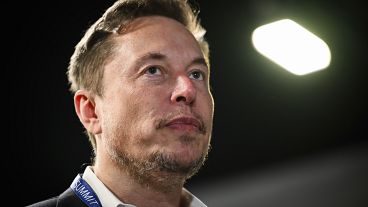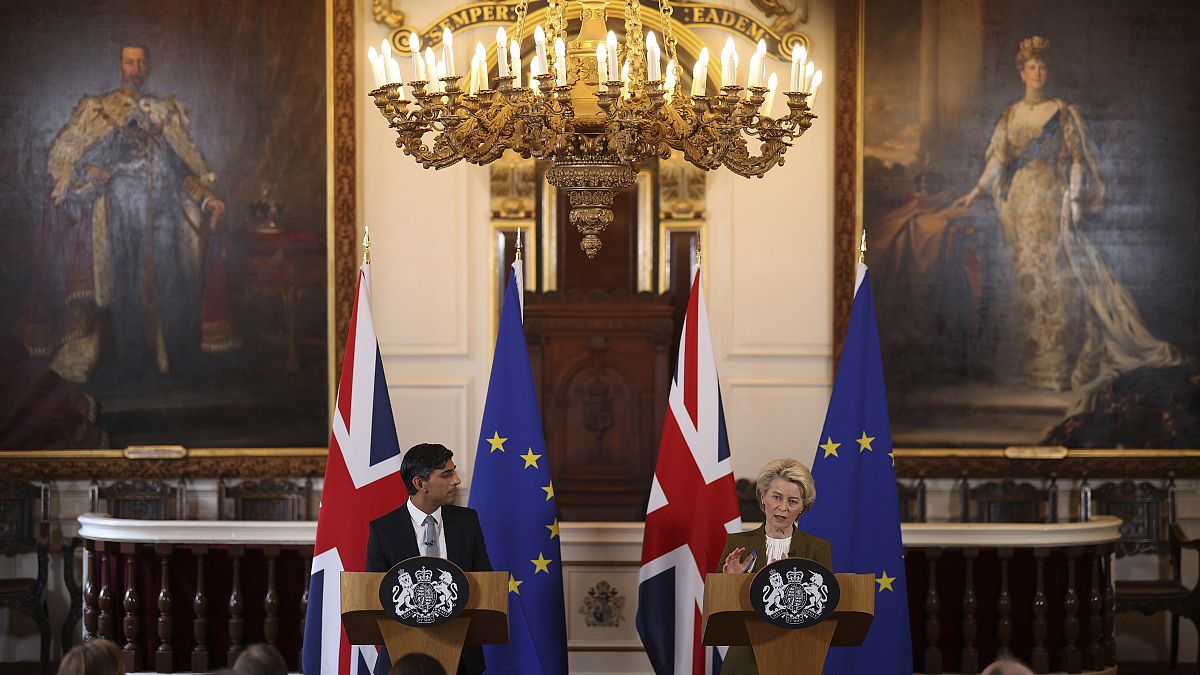Brexit may finally be done, after the EU and UK reached a compromise agreement on the Northern Ireland Protocol and joint European gas purchases will go ahead.
After months of painstaking negotiations, the United Kingdom and the European Union presented an agreement on a revised version of the Northern Ireland Protocol.
Brussels and London compromised on trade rules that have created serious tensions since Britain left the EU in 2020.
If the UK can get this new deal, the Windsor Framework, over the line, it would reduce customs checks imposed on goods traded between Northern Ireland and the rest of the UK.
It will also allow the Northern Irish assembly to opt-out of some EU laws, through a mechanism named the Stormont Brake.
Both sides were visibly relieved and full of praise.
“I believe we can now open a new chapter in a partnership. A stronger EU-UK Relationship, standing as close partners shoulder to shoulder, now and in the future," Ursula von der Leyen, European Commission President told reporters on Monday.
The deal does not technically require ratification, but Von der Leyen’s counterpart, UK Prime Minister Rishi Sunak, said the House of Commons will vote on it “at the appropriate time.”
In other words, now begins his tricky task of selling the deal to the Brexit hardliners who had opposed the Northern Ireland Protocol in the first place.
The day after the announcement, Sunak traveled to Northern Ireland and spoke to workers of a bottling company, telling them that Northern Ireland was in a "unique" and "privileged" position to have access to both the British and EU markets, despite this being the case for the whole of the UK before Brexit.
Confusingly, Sunak, now seems to be suggesting that being part of the single market is a good thing and he is celebrating a deal for Northern Ireland from which the rest of the UK is now excluded.
Either way, when it comes to EU-UK relations, Richard Whitman, an associate fellow at Chatham House in London, told Euronews that hopefully things can now move on from Brexit.
"It puts them on to a normal footing. I mean, we've really had a terrible relationship, particularly over the last two years, despite reaching that agreement on withdrawal and then on the Trade and Cooperation Agreement," Whitman said.
"So, I think we are taking the first steps now to a more normal relationship. I guess I would characterise it as a period of detente after a period of Cold War."
Gas together
On Thursday, Brussels said it will move ahead with plans to buy gas jointly in a bid to leverage the bloc's purchasing power and secure lower prices from international suppliers.
The scheme was approved in mid-December as part of a broader raft of emergency measures to combat the energy crisis. But unlike most of these measures, the collective purchases have yet to be rolled out and yield any tangible effect for households and companies.
Brussels is stepping up the work to have the system up and running by summer when member states are expected to start refilling their underground gas storage – a concentrated push that last year sent prices to astronomical highs never seen before.
Prices have since steadily decreased and are now hovering at €47 per megawatt-hour, similar to the levels seen before Russia launched the full-scale invasion of Ukraine but exceptionally elevated compared to pre-pandemic trends.
"The price of gas in the EU remains inflated. For instance, it is almost seven times higher than in the United States," said Maroš Šefčovič, the European Commission Vice President tasked with steering the joint procurement.
"This naturally affects Europe's competitiveness and the cost of living for our citizens."
The war has forced EU countries to suddenly abandon their energy dependence on Russian fossil fuels and do whatever is necessary to diversify gas suppliers, even if comes with a hefty price tag.
Liquefied natural gas (LNG) from the United States, Qatar and Nigeria, together with boosted pipeline flows from Norway and Algeria, have emerged as the leading alternatives to replace Moscow.
But these producers, particularly LNG traders, are sought-after all around the world, leading to tight supplies and steep fees.
The European Commission wants to gather all member states together in a common undertaking to buy gas and prevent competition from fuelling prices further up.
Countries will be required to pool at least 15% of their storage obligations into an electronic platform, which will then match companies with international providers according to their needs.
Both LNG and pipeline gas will be up for grabs.












